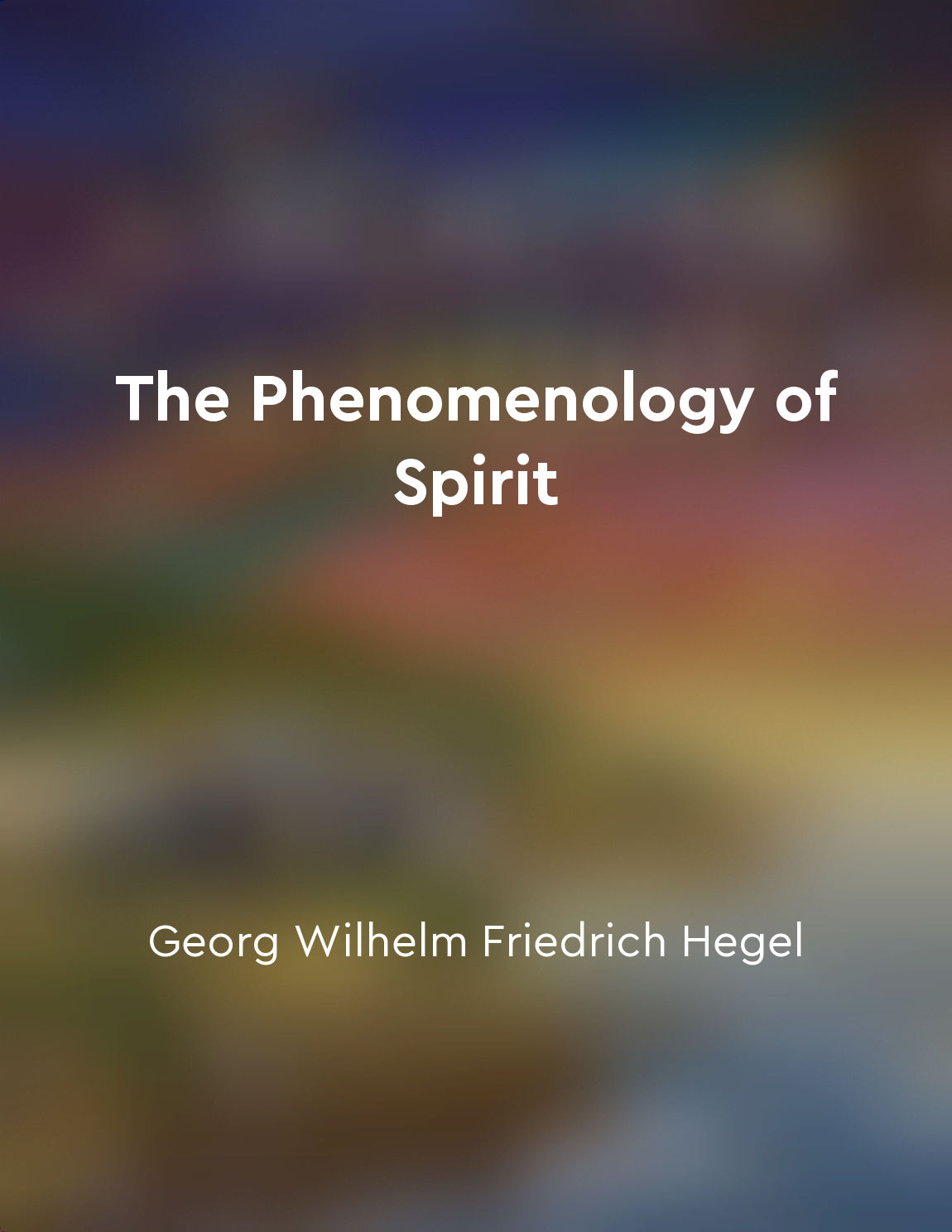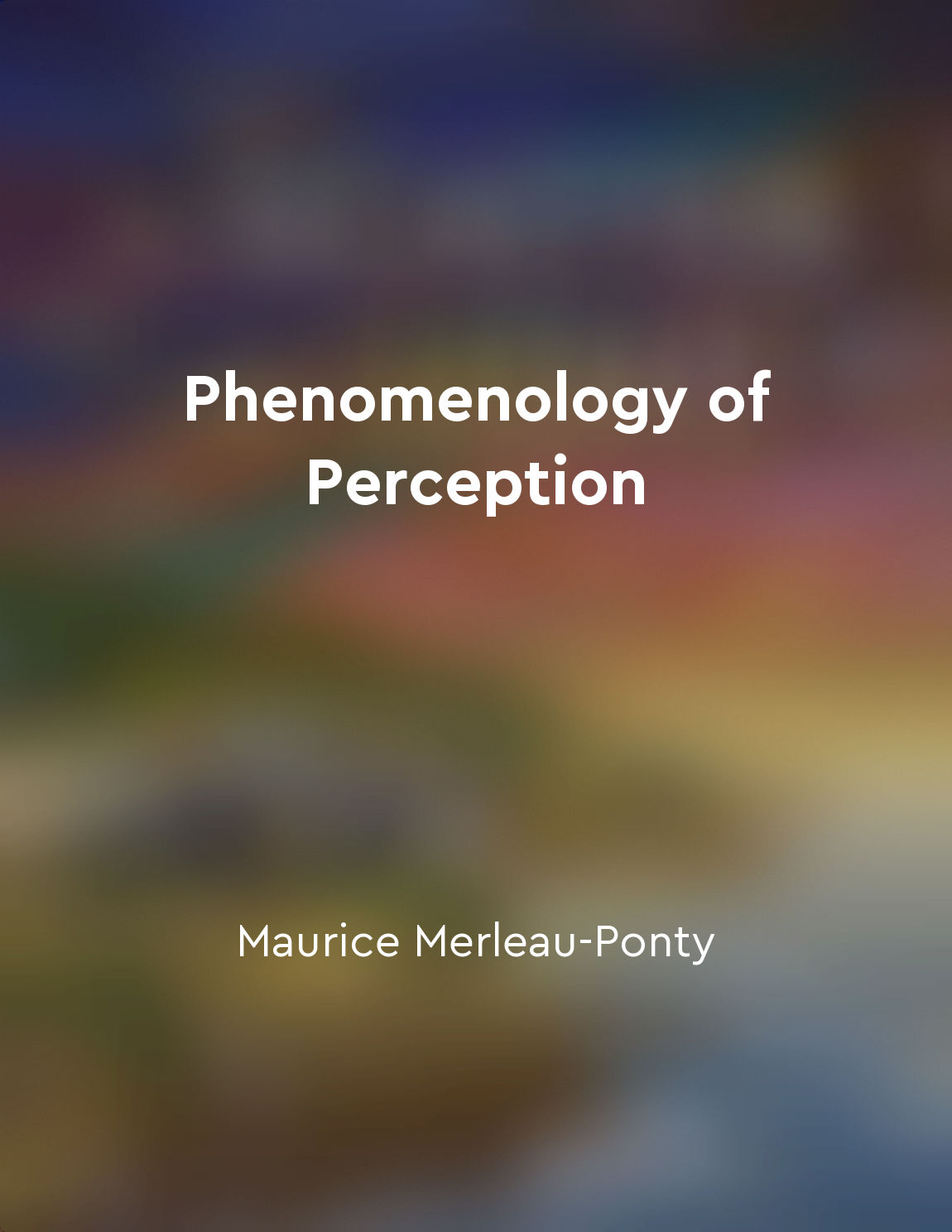Mind and body are two attributes of the same substance from "summary" of Spinoza: Ethics by Benedictus de Spinoza
In Spinoza's philosophical system, the idea that the mind and body are two attributes of the same substance plays a pivotal role. According to Spinoza, there is only one substance in the universe, which he calls God or Nature. This singular substance has an infinite number of attributes, of which we can only perceive two: thought (mind) and extension (body). The mind and body are not separate entities or substances, but rather two aspects or modes of the same underlying reality. They are like two sides of the same coin, inseparable and interdependent. This means that whatever affects the mind will also have an impact on the body, and vice versa. There is a deep unity between the mental and the physical, as they both stem from the same source. Spinoza rejects the Cartesian dualism that posits a radical separation between mind and body. For him, the mind and body are not fundamentally different substances that interact with each other; instead, they are different expressions of the same substance. This view allows Spinoza to overcome the mind-body problem and provide a more holistic understanding of human nature. In this framework, mental states and physical states are closely intertwined. Emotions, thoughts, and perceptions are not purely mental phenomena but are also expressed in the body. Likewise, bodily sensations and movements can have a significant impact on our mental states. The mind and body constantly interact and influence each other, forming a dynamic and integrated whole. By emphasizing the unity of mind and body, Spinoza highlights the interconnectedness of all aspects of reality. He invites us to see ourselves not as isolated individuals but as integral parts of a larger whole. This perspective encourages us to cultivate a more balanced and harmonious relationship between our mental and physical selves, leading to a deeper understanding of ourselves and the world around us.Similar Posts
Dietary changes can improve chronic conditions
The food we eat has a direct impact on our health and well-being, especially when it comes to chronic conditions. Many chronic ...
Importance of Doubt
Doubt plays a crucial role in the pursuit of knowledge. It is through doubt that we question our assumptions, beliefs, and know...
Posture reveals hidden messages
The way we hold ourselves, our posture, can reveal much more than we realize. It is a form of nonverbal communication that can ...
Understanding the roots of your erotic desires can lead to greater satisfaction
To fully embrace and enjoy our erotic desires, it is essential to delve into the roots of these desires. By understanding the o...

Consciousness as the starting point
Consciousness, as the starting point of our inquiry, is the realm where we first encounter the world. It is through consciousne...
Understanding personal triggers is vital for health management
Understanding personal triggers is vital for health management. Our bodies have a wisdom that we often ignore, a wisdom that ca...
Selfawareness
Selfawareness is a critical concept that forms the foundation of personal development and growth. It involves having a deep und...
The mindbody connection is crucial to understanding human health
The mindbody connection is a concept that is often overlooked in the field of health. It is a fundamental aspect of human being...

Perception is an active process of sensemaking
Perception is not a passive reception of stimuli from the outside world. It is not simply about taking in information through o...
Love is knowledge of the eternal
Love, according to Spinoza, is not an emotion or a passion that arises and disappears with changing circumstances. It is a deep...
